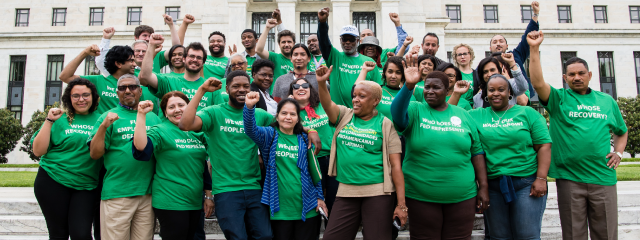Now is the Time for Cities to Exercise Their Power

For the past eight years, as gridlock has frequently halted progress at the national level, hundreds of progressive elected officials have been on the offensive at the city and municipal level.
Progressive elected officials have been working to coordinate campaigns to pass paid sick days legislation and raise the minimum wage, protect immigrant communities, and hold police accountable for true community safety. Cities across the nation have become the center of policy innovation in our country. The work is anchored by Local Progress, a network of hundreds of municipal legislators working together to accelerate these changes across our cities. Local Progress is staffed by the Center for Popular Democracy.
From March 3-5, Local Progress hosted its second annual Local Progress New York conference in Albany, which brought together around 80 local elected officials from across the state.
Just as it had last year, the event lifted up the common cause that exists among leaders with progressive values trying to serve their communities across rural, urban and suburban geographies. The gathering allowed Local Progress members to have real and deep conversations across a diverse array of topics including celebrating the half dozen New York cities and counties who have adopted sanctuary status since the election and discussing how to pass them in more places. Members also discussed police reform, and the challenges smaller municipalities face from underfunded and crumbling infrastructure.
Fortunately, there are hundreds of inspiring progressives in local offices, in red and blue states, in cities and counties and towns, throughout the United States. This past year, more than 19 cities and counties across the country improved the lives of millions of workers by increasing living or minimum wages or implementing paid sick leave policies. Our members led fights for affordable housing ranging from passing rent control in Richmond, CA to creating the first ever dedicated local funding sources aimed at raising more than $150 million over the next decade for affordable housing in Denver, CO. In Seattle, San Jose and New York, members pushed through innovative policies that include supporting the rights of Uber drivers to organize and to advancing fair workweek policies so employees can have greater control over their schedules.
In the coming year, this work will focus on resistance and fighting back against hate and injustice at the local and municipal level.












